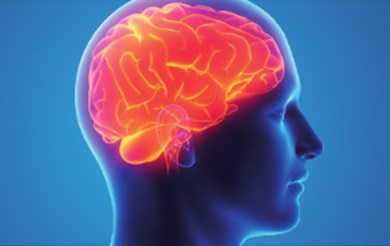Hi Dr Whiffin! Can you start off by telling us a bit about yourself?
I am a registered adult nurse and Associate Professor at the University of Derby. I worked clinically in neurosurgery, and that is where I developed an interest in the needs and experiences of families after brain injury. I completed my PhD in 2014, which examined the experiences of family members in the first year after traumatic brain injury. Since then, I have continued to research in this area, and in more recent years helped to co-found Anchor Point, a national organisation driving change to improve the lives of families after ABI. I am also a director and trustee for Headway Derby.
What are some of your areas of interest?
My specific area of expertise is in the impact of adult traumatic brain injury on family members; however, I am increasingly interested in acquired brain injury more broadly in both adults and children and how this shapes the family system and all the members within it.
I have been lucky to work with some amazing people both from a professional background and those with lived experience. Recent projects have included the impact on parents following childhood ABI, communication and discharge following ABI, identity, narrative, and creative approaches to wellbeing after ABI.
With reference to the latter work I am particularly interested in how creative approaches can be used to support families. One of these is using a narrative (i.e. story telling) technique. Narrative approaches have been used with survivors after ABI but they have not been extended to include family members.
What is your current research about?
Our research is among the first to use a narrative approach with family members. We have called this the ‘Life Threads’ approach because it is based on the Life Threads model. The Life Threads model uses a picture of a rope to show how certain ‘life strands’ break or fray after injury e.g. playing football, while others remain e.g. being a daughter. The current study aims to find out if the ‘Life Threads’ approach is a helpful way for family members to understand and make sense of their own story, and their identity, since the traumatic brain injury of a relative. This can include how they see themselves and what has changed, what stories make them feel isolated from others and which make them feel closer. The approach also leaves room for growth, resilience, and hope. This study will help us to design a larger study to test whether these benefits can be measured.
As a small exploratory study, we would like to invite people who are a family member of a person with any severity traumatic brain injury that happened at least two years ago. We would particularly like to hear from any one in underrepresented groups so that we can understand the experience of a broad range of people.
Why have you decided to do this research?
I hear so often from family members that their needs have been ignored or neglected. Family members often must fight so hard for the survivor and are an integral part of their recovery they are soon exhausted and lose their own sense of self. Yet despite this service, models rarely adopt family centred or family sensitive approaches and support for families is ‘nice to have’ rather than an essential part of everyday practice. There are of course some exceptions to this, and I am in awe of some of the amazing work that people are doing. However, this does seem to be the exception, not the rule, and my ambition is to lead a paradigm shift where family needs are recognised and met, not simply in their role as a carer but in their own right as someone who themselves have experienced a deeply traumatic experience and suffer in the wake of brain injury.
How can people find out more or get involved?
If you would like to know more about the study or know someone who might, please follow this link.
You can also contact me directly via email: c.whiffin@derby.ac.uk
Thank you!













